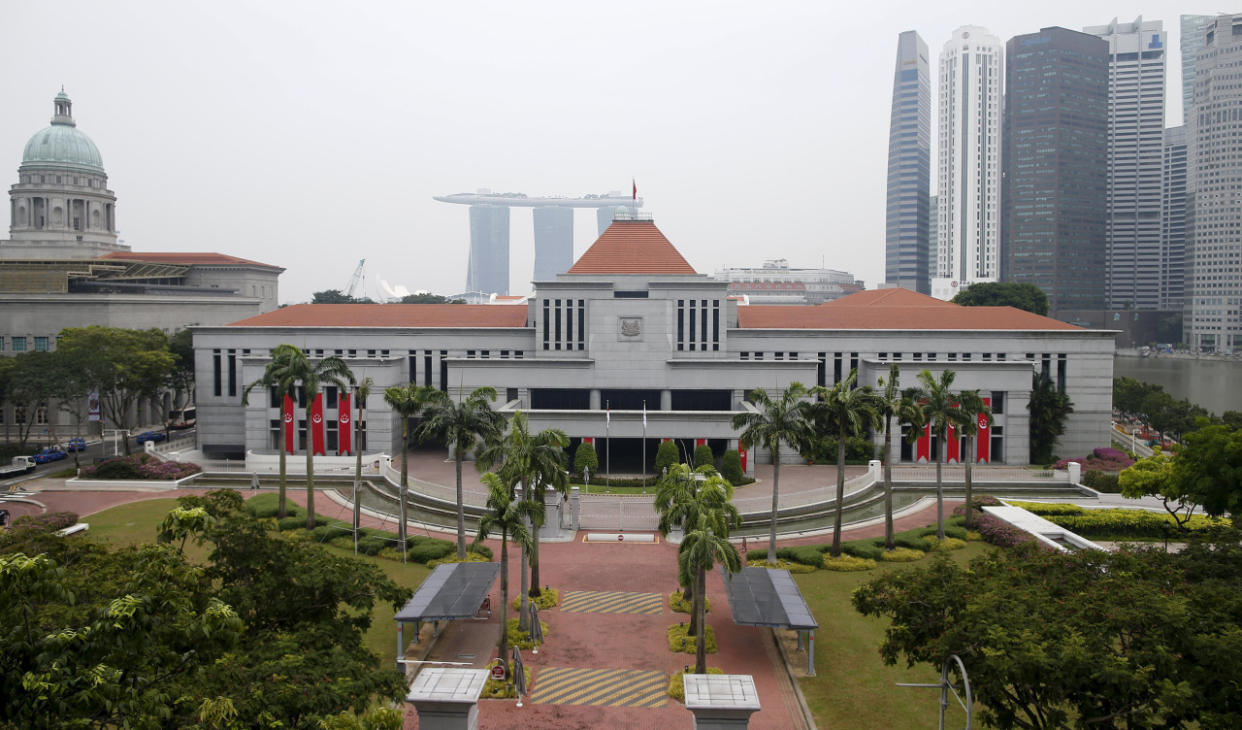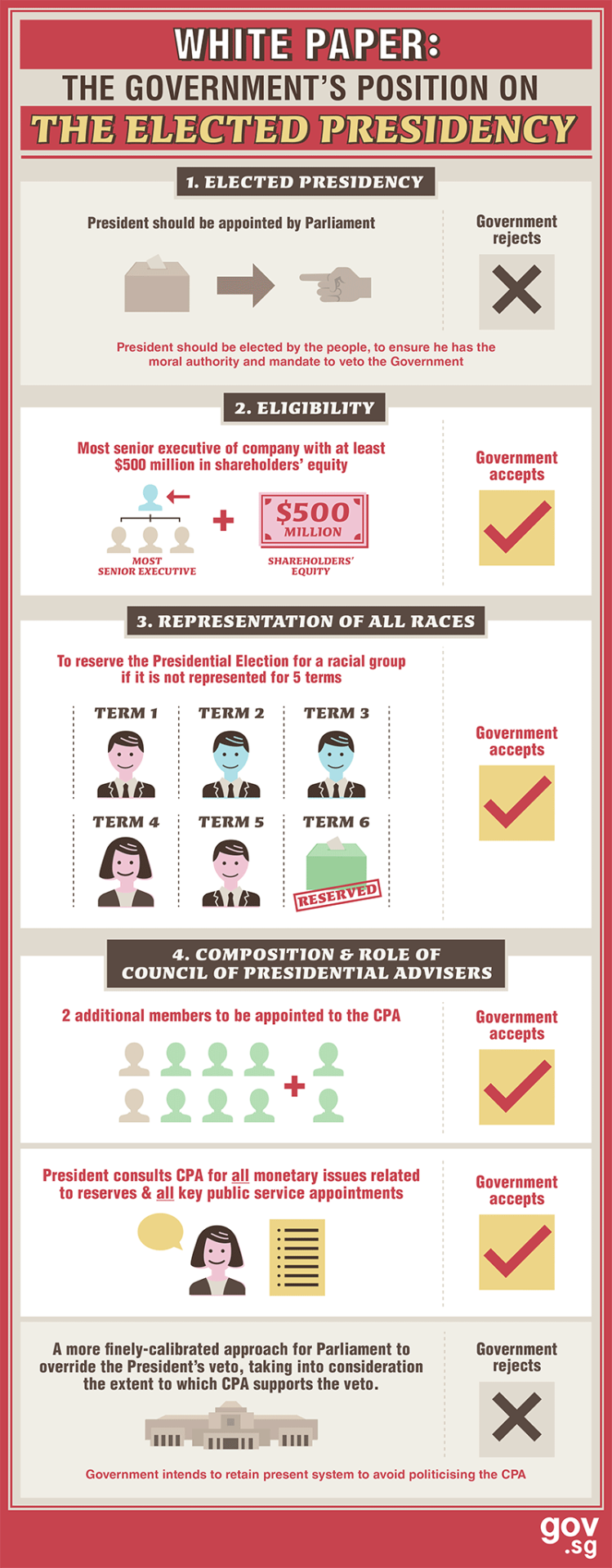Govt accepts most of Constitutional Commission’s proposals on Elected Presidency

(Photo: Reuters)
The government has accepted most of the Constitutional Commission’s (CC) recommendations on changes to the Elected Presidency (EP), with the changes expected to be put in place before the next election in 2017, according to local media reports.
In a 48-page White Paper issued on Thursday (15 September), the government said that it favours a “cautious approach” in implementing the changes, in order to maintain a broader pool of potential candidates.
Candidates from the private sector are now required to be top executives from companies with $500 million in shareholders’ equity. Currently, candidates can qualify as chairmen or chief executives of a company with at least $100 million in paid-up capital.
This change is to reflect the growth of the economy and the reserves.
The government will also reserve elections for candidates from a particular race, if no one of that race has been elected president after five consecutive terms. The move “strikes an appropriate balance” between multiracialism, and ensuring a president from minority races, said the White Paper.
Singapore has not had a Malay president since Yusof Ishak (1965-1970) and no Eurasian president since Benjamin Sheares (1971-1981).
Rejected recommendations
The CC had suggested a return to an appointed president and to give the president’s custodial powers to a body of experts. But the government said that the president needs a direct mandate to have the moral authority to veto an elected government.
It rejected the CC’s proposal that candidates should have served for at least six years – up from the current three – in their respective public or private sector posts.
The government also modified the proposal that a candidate’s qualifying tenure must fall within 15 years before the election to making it acceptable if it falls at least partly within 20 years before the poll.
Going forward, the Council of Presidential Advisers (CPA) will see its numbers being increased from six to eight members and the president being required to consult it on fiscal matters involving the reserves and on key public service appointments.
The CC had also urged the government to decide whether to invoke or repeal a suspended provision to safeguard the powers of the president. This rule lets the president veto any law that aims to curtail his powers, requiring a national referendum to be called in order to overturn the veto.
In this area, the CPA will play a more prominent role. For example, if a presidential veto is not supported by a majority of the CPA, Parliament can override it with a two-thirds majority vote, instead of having to call a national referendum.
But the government rejected another proposal that would adjust the threshold needed for Parliament to override a veto. While such an approach is more “calibrated”, it said the move may unintentionally politicise how members of the council voted.
The CC had been tasked to review three aspects of the EP: the qualifying process for Presidential candidates and whether the eligibility criteria should be updated; whether the powers of the CPA should be beefed up; and recommendations to ensure minority candidates can be periodically elected as President.
A Bill to amend the Constitution will be tabled at the next Parliament sitting, and there will be a full debate at the following sitting in November.
See below for an infographic explaining the government’s White Paper.

(Graphic: MCI)


